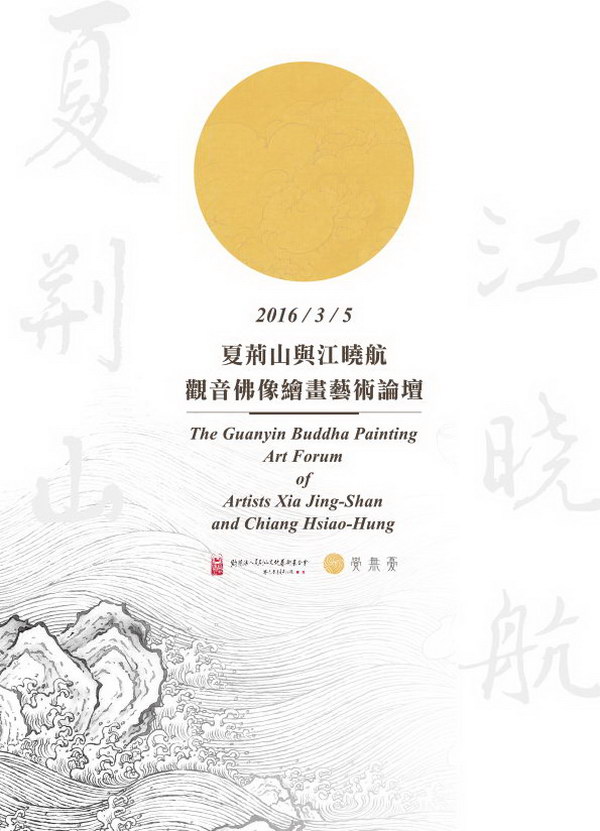
During the development of Buddhist paintings, line drawing and color arrangement
came to their peaks in Song Dynasty, but after the end of Qing Dynasty and the
beginning of the Republic of China, western influence became dominant, with the
emphasis of drawing from life and contrast of light and shadow, traditional Buddha
paintings gradually lost the graceful and serene feeling from the bottom of heart as
religious arts. When we all felt sorry for the loss of tradition, Master Xia Jing Shan and
Chiang Hsiao-Hung in two generations brought back Buddha paintings that enable us
to re-learn how to appreciate serene and graceful Buddha paintings. From these works,
we are inspired by the devotion of Buddhists to work very hard to practice their belief.
Master Chiang Hsiao-Hung is a prestigious Buddha artist and Guanyin painter. He
learned his painting from great artists including Xia Jing Shan and Yao Menggu. Later,
he became interested in famous Buddha painting works of masters in Tang and Song
Dynasty. Among his 500 pieces, more than half are Guanyin paintings. This paper
attempts to explore features in his Guanyin paintings and examine his heritage and
creation of traditional Buddha paintings. By comparing differences presented in
painting works of Chiang Hsiao-Hung and Xia Jing Shan, lessons will be learned for
future Buddha painters.
